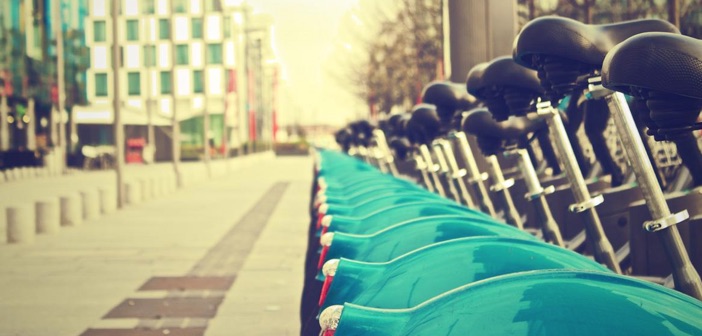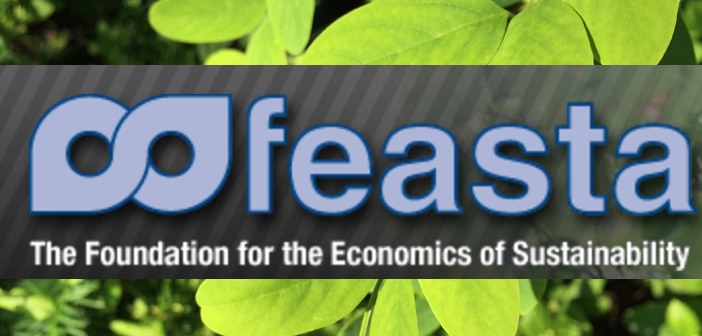Individual Environmental Empowerment | Feasta
As a massive global problem, it’s hard to imagine how small actions taken as an individual can make any difference to climate change. But interestingly there are many ways to contribute to solutions, and reducing our own emissions is feasible, affordable and fun too.
The first thing is to recognise that in Ireland our personal emissions are way too high at over 12 tCO2e per person, per annum and way above the EU average. This is because of our traditional use of fossil fuels such as oil, coal and peat for generating electricity, our reliance on animal agriculture, and car-dependent lifestyles and settlement patterns. But even with this ‘lock-in’ of unsustainable and polluting infrastructure which is beyond the control of individuals, there is a lot we can do to reduce our personal emissions.
Firstly, consume less energy, by turning down the central heating, using public transport, cycling and eating less (or no) red meat. Start a vegetable patch and support local organic farmers’ markets or box delivery schemes. Reduce your household waste and water use – there are loads of practical tips easily found in an internet search. Try to avoid replacing appliances and gadgets such as mobile phones by repairing them or making do with what you’ve got for longer. All of these simple lifestyle choices mean reducing emissions, and they will save us money too.

One of the factors that we need to watch out for though, is what is known as the rebound effect: with the money we save from those changes, we could end up for example, taking an extra holiday abroad or buying more Stuff. Think about putting those savings to work in a in a green way by putting the money towards further emissions reductions (such as insulation or renewable heating), or a holiday at home, or by making donations to ecologically minded organisations. You could also think about greening your personal finances so that you select financial institutions that support green investments and non-fossil energy.
The really important changes won’t happen unless we start to speak up about climate change. We can make much more of a difference by collaborating with others than what we can achieve by ourselves. Humans are great copycats, and we hate to be left behind by new trends, so lead by example and help create a new ‘normal’. Find out about any climate change or environmental initiatives in your area, and find ways to support your local community making a long-term transition to low-carbon development through the new Public Participation Networks. Sometimes it seems as if nothing is happening but that’s probably not the case: start by contacting your local authority’s environmental awareness or heritage officer, the local energy agency if one exists, and local organisations such as Tidy Towns groups or your local An Taisce association for ideas, events and contacts. Even if these activities don’t seem to be tackling climate change as such, it still makes sense to start by engaging with whatever initiatives are already happening, however small, to promote sustainable development and prevent its opposite (such as road developments or out-of-town shopping centres).

But, of course none of the above is enough. We don’t know – as individuals – which difference will really make a difference. These steps are worth taking, because apart from their environmental impact, taking them means we align our behaviour with our principles. Living a greener lifestyle puts us back in touch with nature and other like-minded folk. However, the inconvenient truth about global warming is that it is really a symptom of a deeper, structural problem that human societies have developed. We are addicted – literally – to economic growth fuelled by fossil energy (oil, coal, and gas). We need a transformation of our energy and economic systems but this is not yet on the agenda of political and business elites.
Climate change is a scary topic to read about, but we must stay abreast of the latest science to guide us on what policies are required. Denial is dangerous: but so is ignorance. Check out these news blogs for example, Carbon Brief, and Climate Home for regular updates on the science and politics of climate change.
But it’s important not to feel overwhelmed. In a time of crisis, self-care is just as important as ever. Engaging in environmental action as a group or community is much more rewarding and effective than trying to change the world single-handedly. The spread of social media also means that it’s much easier and quicker to get discussions going or to organise an event or meet up and publicise it for free. The internet has enormous potential for collaboration and activism. But it brings with it new challenges such as trying to build consensus and a truthful exploration of this crisis and its origins.
Established by the late economist Richard Dowthwaite in 1998, Feasta (the Foundation for the Economics of Sustainability) aims to identify the characteristics (economic, cultural and environmental) of a truly sustainable society. Although based in Ireland, we have supporters throughout the world. We are interested in exploring how the necessary transition to such a society can be brought about. In our discussions, research, training and publications we promote the implementation of the measures required for this purpose. We are interested in ways that the economic system needs to be realigned with ecological principles. This means setting a global cap on emissions, but our unique contribution is the idea of personal tradeable carbon permits. Check out our website www.feasta.org for more information about the CapGlobalCarbon project, the Cap-and-Share report, and an archive of blogs and material stretching back over the past two decades.
Of course, we are not the only group working on climate change. Whether you feel you can be most effective as a consumer, researcher, activist, organiser or voter, there are many avenues of action available. And we need them all.

